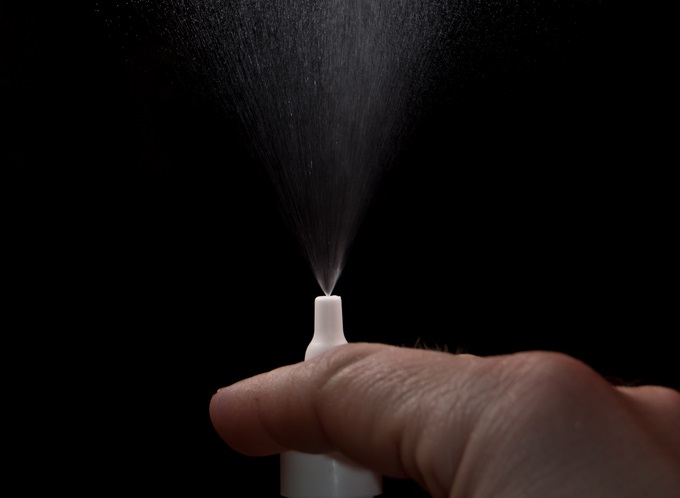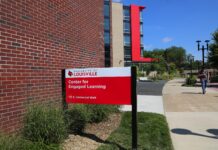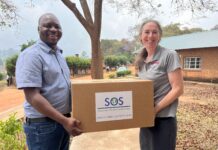
The University of Louisville has received funding from the U.S. Department of Defense to develop a nasal spray to prevent serious viral respiratory infections such as COVID-19 using Q-Griffithsin, a drug compound developed and co-owned by UofL.
The one-year project, funded through an $8.5 million agreement from the DoD, includes developing the spray, testing the formulation in lab studies and conducting a Phase I clinical trial. The researchers expect the spray to be used to protect frontline health care workers, military personnel living in close quarters and other essential workers, as well as vulnerable people for whom a vaccine might not be fully protective.
Kenneth E. Palmer, director of the UofL Center for Predictive Medicine for Biodefense and Emerging Infectious Diseases and the Helmsley Charitable Trust Endowed Chair in Plant-based Pharmaceutical Research at UofL, is leading the project, known as PREVENT-CoV.
“The idea is to deliver the antiviral agent to the location in the body where the virus is known to replicate first, the upper respiratory tract,” Palmer said.
Q-Griffithsin (Q-GRFT), an analog of the biologic griffithsin, discovered at the Center for Cancer Research, NCI and co-owned by UofL, the University of Pittsburgh and the National Cancer Institute, is a potent anti-viral protein that acts against multiple coronaviruses, including MERS, SARS-CoV and SARS-CoV-2, as well as pandemic threat viruses such as Nipah virus. An application using Q-GRFT to prevent HIV infection already is in Phase I clinical trial.
“The relatively short timeframe for this project is possible due to the fact that we have a supply of Q-GRFT on hand and that it already has undergone testing related to the HIV preventative,” said Joshua Fuqua, in the UofL Department of Pharmacology and Toxicology, who will manage the program.
The UofL researchers will develop and manufacture the nasal spray, to be used once a day to prevent SARS-CoV-2 infection, in collaboration with Lisa Rohan and Sharon Hillier, at the University of Pittsburgh and Magee-Womens Research Institute, Barry O’Keefe, at the National Cancer Institute and Donald Lo and colleagues at the NIH National Center for Advancing Translational Sciences. The team first will formulate the compound for use as a nasal spray, then will test the newly developed spray in the lab using human samples and tissues and in animal models.
Following the preclinical testing of the spray, the UofL Clinical Trials Unit will conduct a Phase I clinical trial, directed by Gerald Dryden, professor of medicine in the Division of Gastroenterology, Hepatology and Nutrition, and Kevin Potts, associate professor in the Department of Otolaryngology and Head and Neck Surgery and Communicative Disorders, to test the newly developed spray in healthy volunteers in a controlled, randomized study to evaluate its safety, ease of use, drug activity and tolerability.
“We are pleased to work with the University of Louisville and hopeful about the prospect of developing Q-Griffithsin to combat COVID-19,” said Douglas Bryce, the DoD’s joint program executive officer for chemical, biological, radiological and nuclear defense. “Repurposing a medical countermeasure that is already in development as a stopgap to potentially provide pre-exposure prophylaxis is a critical component of an effective layered defense. Pursuing innovative solutions with our partners supports both our service members and the American public as we continue our fight against this and other diseases.”
With positive results, the researchers would seek U.S. Food and Drug Administration Emergency Use Authorization for deployment of the formulation, a step that the researchers anticipate could happen as soon as the end of 2021.
“This is a great example of how UofL researchers pivoted rapidly to address this deadly pandemic and speaks volumes about why research matters to society,” said Kevin Gardner, executive vice president of research and innovation at UofL. “Our state-of-the-art research infrastructure at the Center for Predictive Medicine allowed rapid efficacy testing for this and many other prospective anti-viral therapies that have real potential to prevent COVID-19 infection, reduce its transmission and treat its effects.”


































